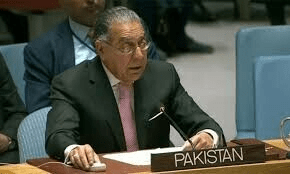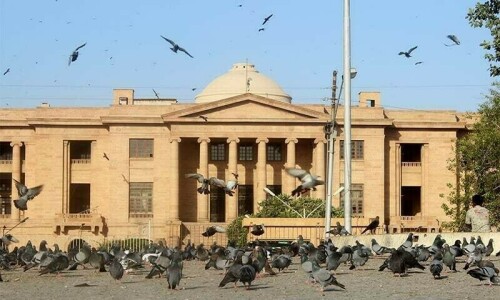Walking around in Mashkay’s Gajjar Town, it seems like the earthquake struck just a day ago. The debris remains as it is, with no signs of reconstruction, and is surrounded by tattered clothes, broken suitcases and toys.
Those who could afford to leave the area did so, with one family member staying back to help with reconstruction. But most who stayed behind are still awaiting help. With an exodus from Mashkay to Vinder, Hub and Karachi in recent weeks, the majority of those left behind are the poorest of the poor, trying to make ends meet in whichever way possible.
The earthquake that hit Awaran on Sept 24 was a second one to strike Balochistan in 2013, earlier hitting a small town Mashkel near the border with Iran in April. Apart from destroying the land, it brought to the fore the abject poverty that Awaran and its tehsils are silently enduring.
On a sunny day, the only bazaar inside the town is buzzing with activity, as people line up to buy equipment for construction. The daily chores now include the challenge of arranging the means to reconstruct homes during the day, as temperatures go down at night, at times dropping to as low as minus four degrees Celsius.
Though the process of rebuilding homes has been largely helped by NGOs, the supply of both rations and construction material has been insufficient and injudicious. One man explained: “Those with a family of 12 got one blanket, while a man whose family was packed off to another district ended up getting 10.” And then there are those who got nothing.
Just a block away from the bazaar, a former schoolteacher, Zawaad Ali, 38, was busy reconstructing his home. With a shovel in his hand and muddied face, he said that, “I used to be a teacher by profession, but the school I taught in also collapsed. So, now I build my home for a few hours each day, as apart from the cold, there’s fear of an operation during the night.”
The people said they “can live an entire year on dates and water,” but at the moment, they need the government’s help in rebuilding their ruined homes.
In addition to the inclement weather, fear of harassment by paramilitary officials and rebels are two of the biggest concerns of the people in Mashkay.
“We are tired of both,” says a middle-aged man Abdul Qayyum, a land owner who currently houses members of an NGO inside his concrete but decrepit house to protect them from harassment by paramilitary forces. “If one fires a shot, the other does the same. It ends up becoming an hour-long altercation with people caught in the middle. More than reconstruction it is the harassment we face by FC men and the rebels that irritates us the most.”
Near the far end of the street, Abdul Hafeez Dahani, a trader, lives amidst the ruins of what was his home. He lived with his seven brothers and their families. “I lost two nieces and a nephew along with their mother. The first thing I did was to send off my entire family to Hub… then I waited for three days with the bodies for the ambulances to arrive,” he narrates quietly.
Only three ambulances arrived three days later. By then the death toll in Gajjar had risen to 30. Hafeez says what he witnessed from that time on was dignity and patience. “People waited another week to bury their loved ones. Children were buried first, so in this way nobody quarrelled. Those with severe injuries eventually succumbed, as their families held onto them, waiting for the ambulances.”
Like others in the area, Hafeez is fearful of going to the nearby Intermediate College for Boys which has temporarily been taken over by the FC to distribute food among the people. “There is fear of being picked up or being suspected of supporting the rebels. How can I support them? I have my own family to look after. The same is with the rebels; they call you a traitor if you sound reasonable,” he adds.
Because of the insurgency in the province, particularly in Mashkay, rations are either kept in street corners or dropped from above, people said. “Fourteen people have died so far just to clinch a bag of ration,” said a former schoolteacher Fida Ahmed. “Our saviors have decided to keep us that way, so be it.”














































